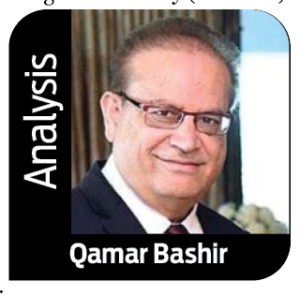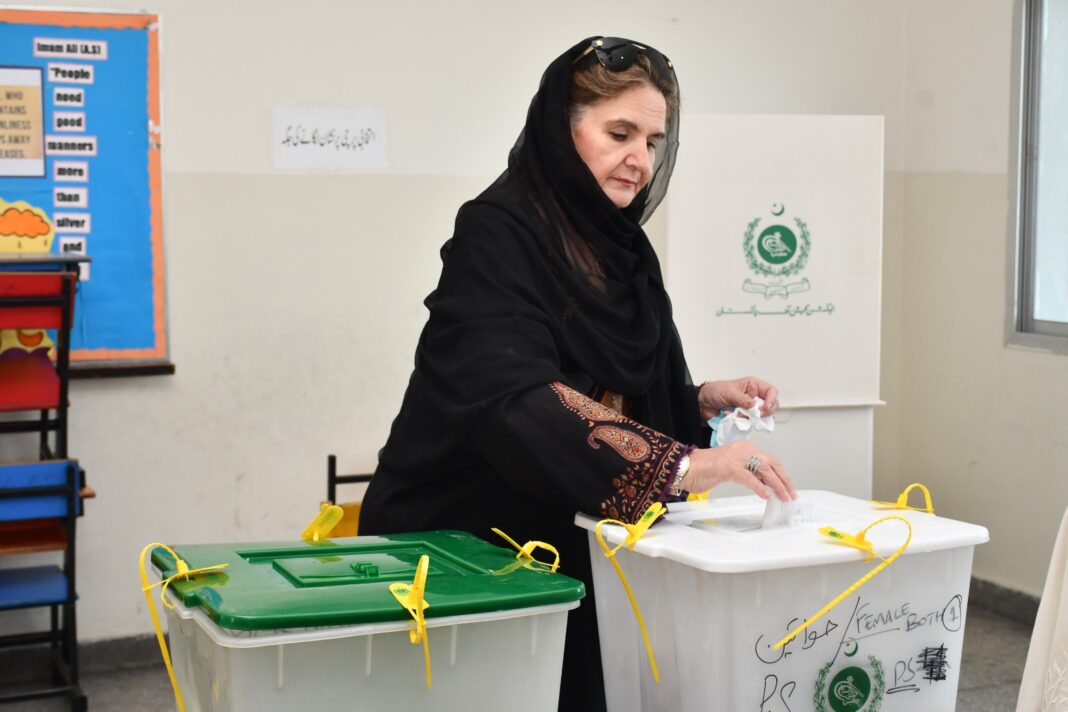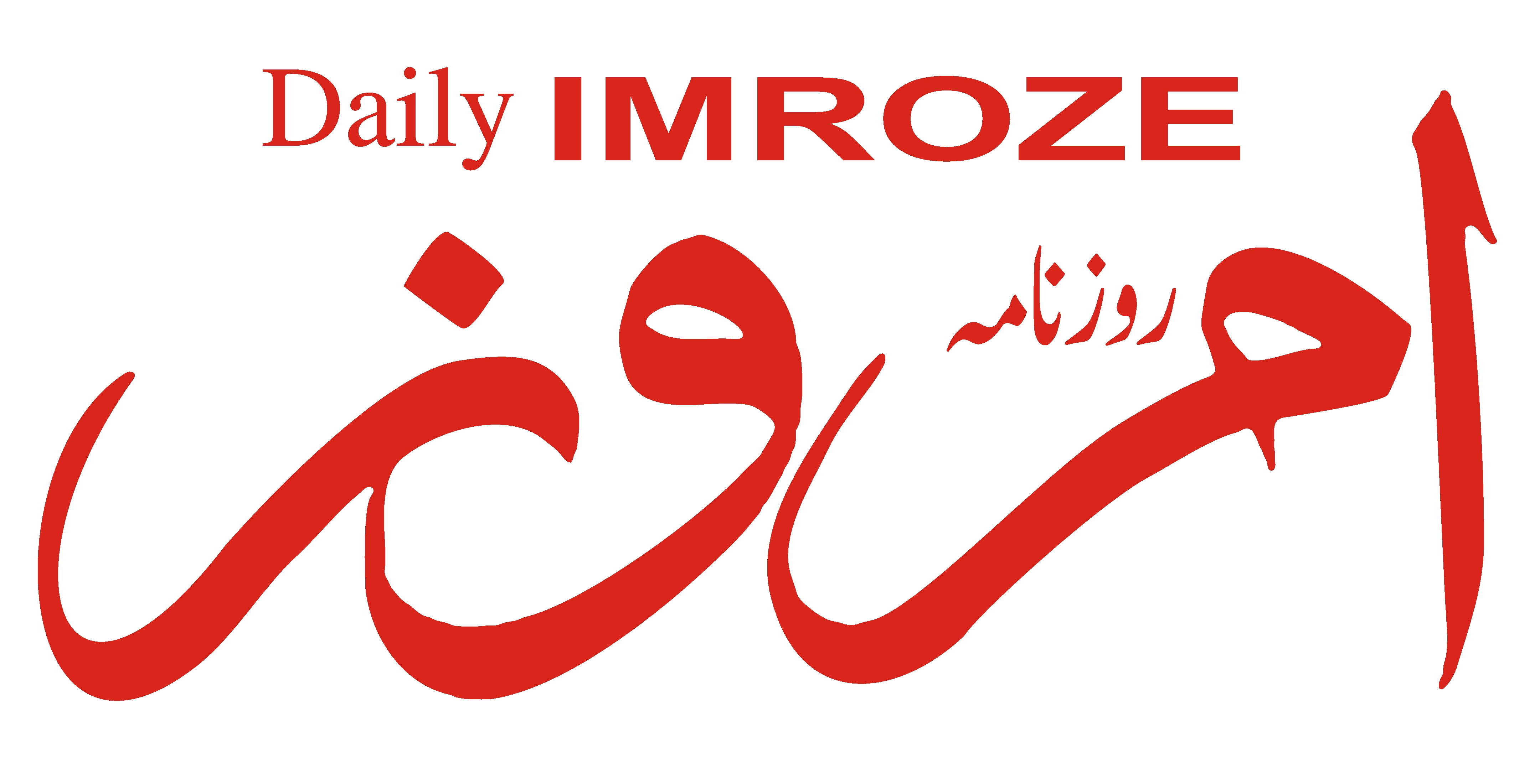
The nation nears the conclusion of the exhaustive election process, amid accusations of rigging and the misuse of state power in favor of PML(N), leading to widespread condemnation from the media and PTI, who have labeled the election as stolen. The mandate appears highly fragmented across the country, surprising both observers and influential figures. Allegations abound regarding the manipulation of results by state entities to benefit PML(N) and hinder PTI from securing a clear majority, both nationally and in the crucial province of Punjab.
The election outcomes, though shocking and demoralizing, saw PML(N) exhibiting resilience by claiming victory in Punjab and at the national level. However, the humbling results prompted a shift in demeanor, with PML(N) adopting a more conciliatory tone. Leader Mian Nawaz Sharif extended an olive branch to all political parties, the judiciary, and the Armed Forces, emphasizing a desire for collaboration to overcome the country’s challenges. He pledged PML(N)’s commitment to avoiding confrontation and instead advocated for unity to elevate the nation to greater heights of prosperity.
He announced the formation of two-member teams, led by Shahbaz Sharif and Ishaq Dar, tasked with initiating immediate dialogue with Asif Ali Zardari of PPP, MQM, and JUI. The objective was to persuade these parties to form a coalition government with PML(N) aimed at fostering prosperity and development in Pakistan. However, PML(N) is cognizant of the potential hefty cost associated with such a coalition. It may entail relinquishing the premiership to Bilawal Bhutto and granting the presidency to Asif Ali Zardari, among other costly demands from various parties. This could leave PML(N) in a precarious position, rendering it ineffective for practical purposes.
Mr. Ishaq Dar sounded a warning to PTI, suggesting that while independents may have secured significant victories, they cannot independently form a government and will likely align with other parties to do so. He proposed Nawaz Sharif as Prime Minister with himself as Finance Minister.
On the other hand, Syed Khurshid Shah of PPP struck a cautious tone regarding Mian Nawaz Sharif’s proposals. He stated that it is premature to discuss coalition formation until all results are finalized. PPP will determine its future course of action once the total results are announced and discussions with over 16 independents progress further.
At present, PTI is embroiled in a protracted legal struggle to reclaim what they allege as a stolen mandate, restore their party status, and explore options to align with smaller parties to secure seats reserved for women.
As it stands, PTI has emerged as the largest party at the federal level (95/265), closely followed by PML(N) with 67 seats, PPP with 52, MQM with 8, IPP with 3, JUI with 2, and BNP Mengal with 1.
PPP is poised to form the government in Sindh, while PTI is expected to do so in KP. In Punjab, PML(N) holds the majority with 144 seats, closely trailed by PTI. The battle for Lahore’s throne is anticipated to be fiercely contested between the two parties. In Balochistan, PPP has secured the most seats and is likely to pursue a coalition government, a common occurrence in the province’s political landscape.
Mr. Rauf Hassan of PTI asserted that the party is poised to form governments in Punjab, KP, and at the federal level. Mufta Ismael remarked on the significant voter turnout for PTI, surprising all political stakeholders. Salman Akram Raja, in a Vlog, disclosed that despite leading with 80,000 votes according to Form 45, the Returning Officer (RO) unlawfully denied him Form 47 and expelled him from his room. He has filed an appeal with the Lahore High Court and urged PTI leaders and workers to remain vigilant to safeguard their victory.
Mr. Jabran Nasir of PTI asserted that even the aggregate votes in Nawaz Sharif’s Form 47 did not reconcile, suggesting widespread rigging nationwide. He accused the pervasive rigging, conducted with impunity, of fueling disillusionment, anger, and frustration among the populace. An analyst alleged that the election outcomes in over 60 constituencies were manipulated in favor of PML(N), with numerous presiding officers coerced into altering results under threat of severe repercussions.
The international media’s headlines resound with concerns over transparency, rigging allegations, and perceived bias favoring PML(N). The New York Times warns of a shadow cast by rigging accusations, while the BBC raises questions about the election’s fairness amidst irregularities. France’s Le Monde, Hindustan Times, and Turkey’s Anadolu Agency echo similar apprehensions. Al Jazeera reports on rigging claims and internet disruptions, with Reuters highlighting Western observers’ worries about irregularities. CNN International reports on unexpected delays in vote counting. The Associated Press calls for transparency from the international community, while TRT labels the 2024 elections as the least fair and transparent in Pakistan’s history.
The Committee to Protect Journalists (CPJ) and Amnesty International condemned the suspension of internet and cellular services, highlighting Pakistan’s temporary closure of border crossings with Iran and Afghanistan for security reasons. Analysts criticized the election as the least credible since Pakistan’s independence, citing allegations of pre-poll rigging and a crackdown on Imran Khan’s PTI party. The banning of PTI’s cricket bat symbol on ballots disadvantaged illiterate voters, while TV stations were prohibited from airing Khan’s speeches. Political violence marred the lead-up to the vote, exemplified by twin blasts targeting campaign offices in Balochistan, claimed by the Islamic State Pakistan Province militant group.
In the aftermath of the 2024 elections, Pakistan finds itself at a critical juncture, grappling with the fallout of allegations of widespread rigging, transparency concerns, and the polarization of political forces. As the nation awaits the finalization of results and potential coalition formations, the need for transparency, accountability, and a commitment to democratic principles has never been more pressing. The international community’s scrutiny, coupled with domestic calls for justice and electoral integrity, underscores the imperative for thorough investigations and corrective measures. It is incumbent upon all stakeholders, including political parties, electoral authorities, and civil society, to work towards restoring faith in the democratic process, ensuring that the voices of the Pakistani people are heard and respected. Only through genuine dialogue, accountability, and a collective commitment to democratic values can Pakistan chart a course towards a more stable, inclusive, and prosperous future.
Writer is Press Secretary to the President(Rtd),Former Press Minister at Embassy of Pakistan to France,Former MD, SRBC





